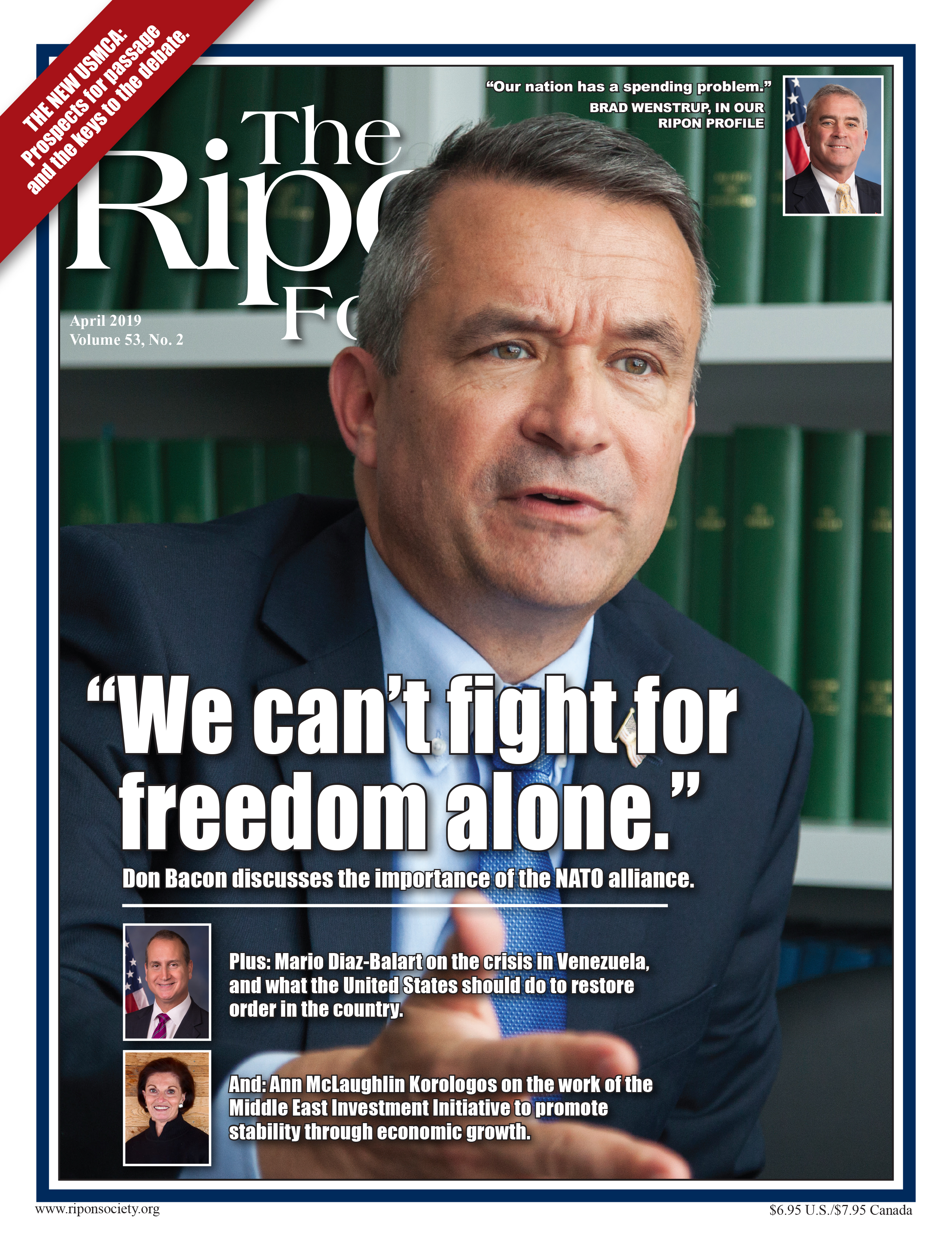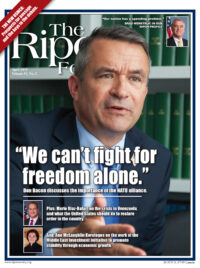
My family and I are planning a visit to Normandy this summer to mark the 75th anniversary of D-Day.
In preparing for our trip, I naturally am doing some research on the invasion and the area where our troops landed on June 6, 1944.
Like many others, I have read books about the operation, and I have seen movies that depict the heroic efforts and tragic sacrifices that combined to make that day one which Americans look back on with pride, humility, and a deep sense of appreciation.
What Americans sometimes forget is that it wasn’t just U.S. troops who landed on the beach that morning. It was British troops and Canadian troops and troops from several other nations, as well. President Ronald Reagan paid tribute to these gallant forces during his famous speech at Normandy to mark the 50th Anniversary of the landing in 1984.
“There was the impossible valor of the Poles,” the Gipper stated, “who threw themselves between the enemy and the rest of Europe as the invasion took hold, and the unsurpassed courage of the Canadians who had already seen the horrors of war on this coast. They knew what awaited them there, but they would not be deterred. And once they hit Juno Beach, they never looked back.
“All of these men were part of a rollcall of honor with names that spoke of a pride as bright as the colors they bore: the Royal Winnipeg Rifles, Poland’s 24th Lancers, the Royal Scots Fusiliers, the Screaming Eagles, the Yeomen of England’s armored divisions, the forces of Free France, the Coast Guard’s ‘Matchbox Fleet’ and you, the American Rangers.”
In past appearances before The Ripon Society, House Armed Services Committee leader Mac Thornberry has spoken about the sacrifices that allied forces made on that day in Normandy and over the course of World War II. He has also spoken about how, in many respects, Americans have grown complacent about the international order that has been created since that time.
“I can give you lots of statistics about how many people have been lifted out of poverty, how life expectancy has increased, and how the world has benefited from what we and our allies created and maintained, Thornberry said in a November 2017 speech. “I think what Americans don’t appreciate is how much better our lives are. We have been able to increase our prosperity and our quality of life and our length of life largely because of the security situation in the world, and the economic situation that comes from that security.”
Today, that sense of security – and the international order that the allies created in the decades following World War II – is under assault. Treaties are being scrapped, institutions are being scrutinized, and America’s role as the leader of the free world is being questioned like it never has been before. In this edition of The Ripon Forum, we take a look at some of these institutions and treaties and examine why they remain important to the United States and our interests around the world.
Nebraska Congressman and retired Brigadier General Don Bacon kicks off our coverage with an assessment of the NATO alliance at a time when the President has called the value of that alliance into doubt. Along similar lines, former Senator Richard Lugar offers up a reasoned defense of the INF Treaty, and an explanation of what’s at stake by leaving it.
With the situation in Venezuela growing worse with each passing day, Florida Congressman Mario Diaz Balart shares his thoughts on how America is responding to the crisis and why we cannot afford to sit back and let other countries – particularly Russia – lead the way.
In an interview with the Forum, former Reagan Cabinet Secretary Ann McLaughlin Korologos discusses another volatile region of the world and explains how, over the past 10 years, the Middle East Investment Initiative has been working to promote stability through economic growth.
With Britain trying to figure out how to leave the European Union and the global trade picture being called into doubt, this latest edition also includes a series of op-eds and essays looking at America’s changing relationships with a number of its trading partners and how China is becoming a growing economic force around the world.
We stay closed to home in our latest Beyond the Beltway feature with an op-ed by Indiana State Senator Erin Houchin about the lessons that can be learned about governance from her home state. And in our latest Ripon Profile, Ohio Congressman Brad Wenstrup discusses the issue facing America that no one is talking about and the historical figure he would most like to meet.
As always, we hope you enjoy this latest edition, and encourage you to contact us with any comments or questions you might have.
Lou Zickar
Editor of The Ripon Forum
louzickar@clu.ccw.mybluehost.me




